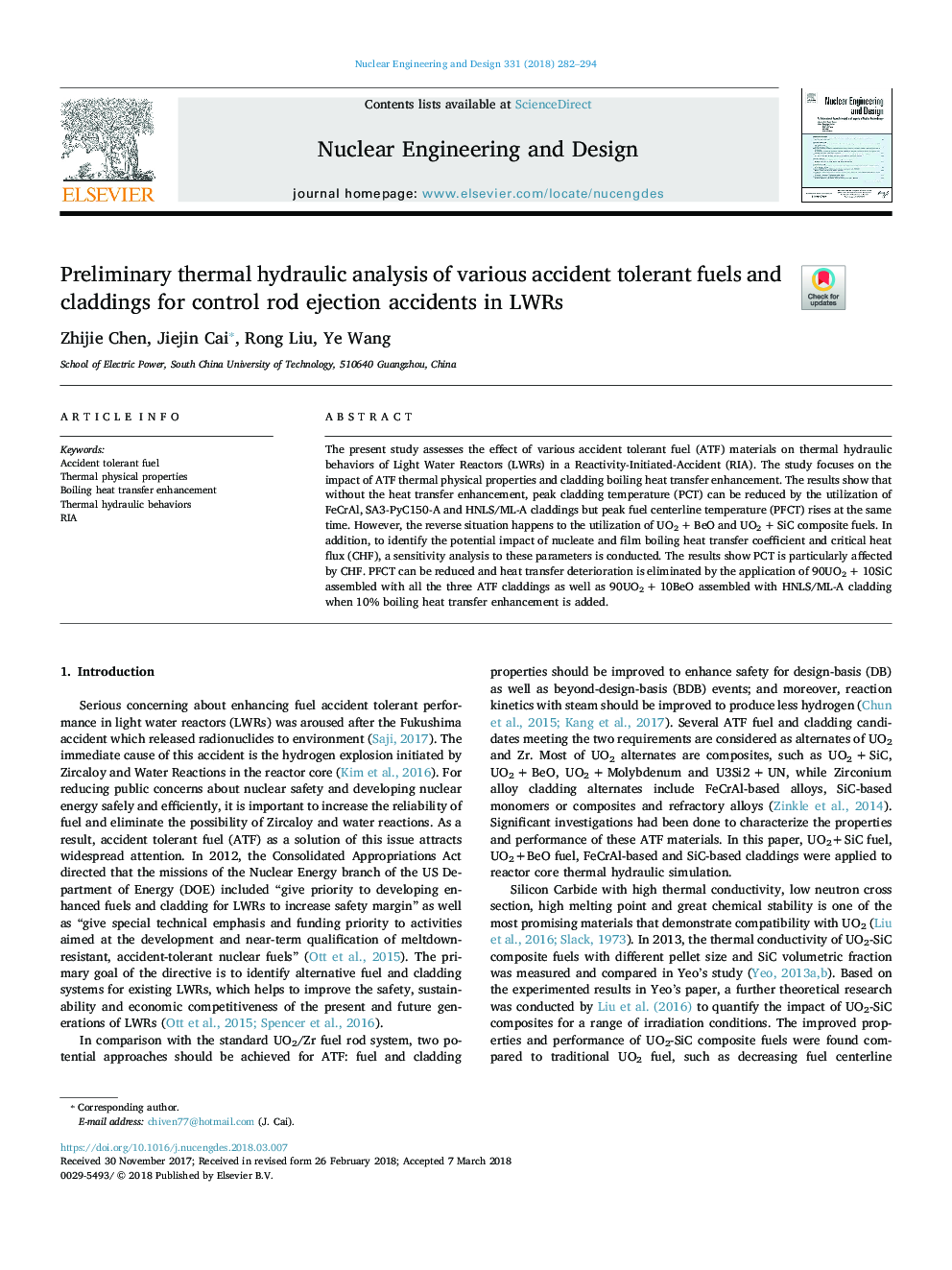| Article ID | Journal | Published Year | Pages | File Type |
|---|---|---|---|---|
| 6758888 | Nuclear Engineering and Design | 2018 | 13 Pages |
Abstract
The present study assesses the effect of various accident tolerant fuel (ATF) materials on thermal hydraulic behaviors of Light Water Reactors (LWRs) in a Reactivity-Initiated-Accident (RIA). The study focuses on the impact of ATF thermal physical properties and cladding boiling heat transfer enhancement. The results show that without the heat transfer enhancement, peak cladding temperature (PCT) can be reduced by the utilization of FeCrAl, SA3-PyC150-A and HNLS/ML-A claddings but peak fuel centerline temperature (PFCT) rises at the same time. However, the reverse situation happens to the utilization of UO2â¯+â¯BeO and UO2â¯+â¯SiC composite fuels. In addition, to identify the potential impact of nucleate and film boiling heat transfer coefficient and critical heat flux (CHF), a sensitivity analysis to these parameters is conducted. The results show PCT is particularly affected by CHF. PFCT can be reduced and heat transfer deterioration is eliminated by the application of 90UO2â¯+â¯10SiC assembled with all the three ATF claddings as well as 90UO2â¯+â¯10BeO assembled with HNLS/ML-A cladding when 10% boiling heat transfer enhancement is added.
Related Topics
Physical Sciences and Engineering
Energy
Energy Engineering and Power Technology
Authors
Zhijie Chen, Jiejin Cai, Rong Liu, Ye Wang,
